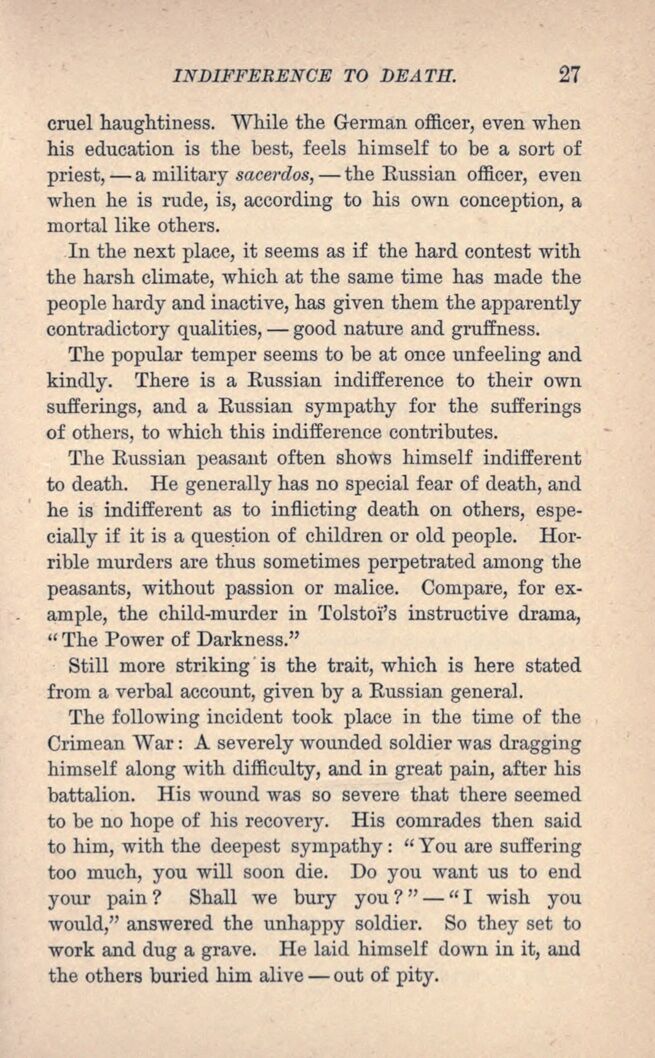
Full resolution (JPEG) - On this page / på denna sida - III

<< prev. page << föreg. sida << >> nästa sida >> next page >>
Below is the raw OCR text
from the above scanned image.
Do you see an error? Proofread the page now!
Här nedan syns maskintolkade texten från faksimilbilden ovan.
Ser du något fel? Korrekturläs sidan nu!
This page has been proofread at least once.
(diff)
(history)
Denna sida har korrekturlästs minst en gång.
(skillnad)
(historik)
cruel haughtiness. While the German officer, even when
his education is the best, feels himself to be a sort of
priest,—a military sacerdos,—the Russian officer, even
when he is rude, is, according to his own conception, a
mortal like others.
In the next place, it seems as if the hard contest with
the harsh climate, which at the same time has made the
people hardy and inactive, has given them the apparently
contradictory qualities,—good nature and gruffness.
The popular temper seems to be at once unfeeling and
kindly. There is a Russian indifference to their own
sufferings, and a Russian sympathy for the sufferings
of others, to which this indifference contributes.
The Russian peasant often shows himself indifferent
to death. He generally has no special fear of death, and
he is indifferent as to inflicting death on others,
especially if it is a question of children or old people.
Horrible murders are thus sometimes perpetrated among the
peasants, without passion or malice. Compare, for
example, the child-murder in Tolstoï’s instructive drama,
“The Power of Darkness.”
Still more striking is the trait, which is here stated
from a verbal account, given by a Russian general.
The following incident took place in the time of the
Crimean War: A severely wounded soldier was dragging
himself along with difficulty, and in great pain, after his
battalion. His wound was so severe that there seemed
to be no hope of his recovery. His comrades then said
to him, with the deepest sympathy: “You are suffering
too much, you will soon die. Do you want us to end
your pain? Shall we bury you?”—“I wish you
would,” answered the unhappy soldier. So they set to
work and dug a grave. He laid himself down in it, and
the others buried him alive—out of pity.
<< prev. page << föreg. sida << >> nästa sida >> next page >>